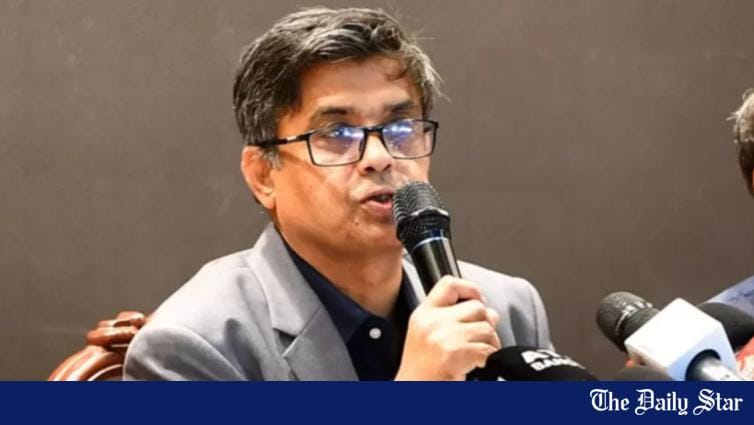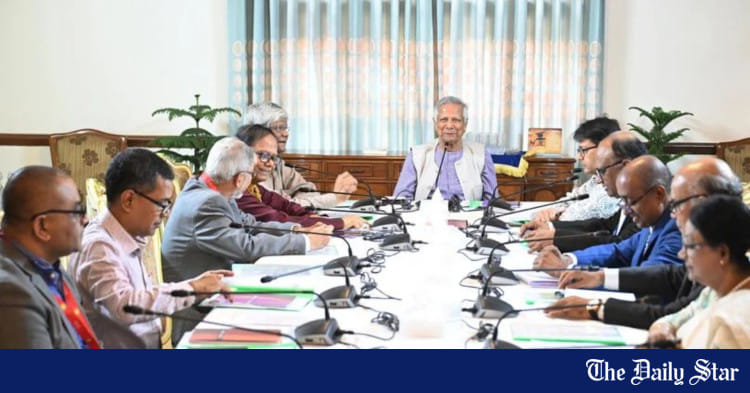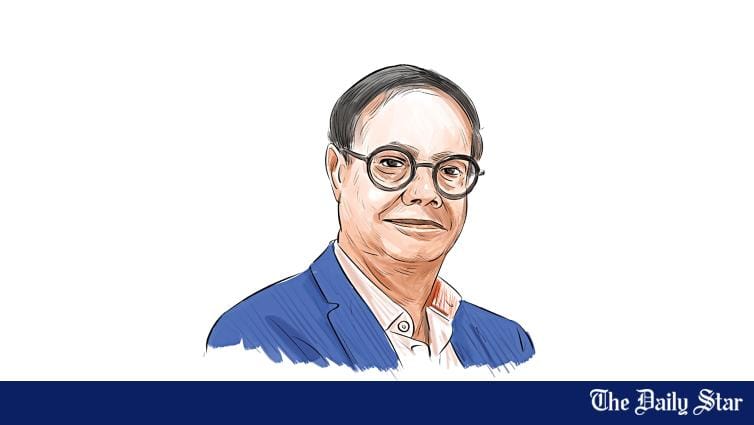Saif
Senior Member
- Joined
- Jan 24, 2024
- Messages
- 17,319
- Likes
- 8,373
- Nation

- Residence

- Axis Group


Assets of Hasina, family members found in five countries: Shafiqul
'A joint probe team has found assets related to her family in the UK, USA, Malaysia, Singapore, Hong Kong and Cayman Islands,' says the press secretary to the chief adviser
Assets of Hasina, family members found in five countries: Shafiqul

Shafiqul Alam. File photo
Chief Adviser's Press Secretary Shafiqul Alam has said assets of deposed prime minister Sheikh Hasina and her family members were found in five counties including the UK and the US.
"A joint probe team has found assets of Sheikh Hasina, her family members and the individuals and organisations related to her family in the UK, USA, Malaysia, Singapore, Hong Kong and Cayman Islands," he said at a press briefing at the Foreign Service Academy in the capital this afternoon.
Shafiqul said the existence of Russian slush fund (a reserve of money used for illicit purposes, especially political bribery) was also found in a bank of Malaysia.
He said over Tk 636 crore deposited in 124 banks accounts were attached or frozen, while 60-katha plot of Rajuk and eight flats with 10 decimal land worth Tk 8.85 crore were attached.
The press secretary said six cases were filed against Hasina and her family members on charge of plundering and forgery. Probes were completed and charge-sheets were submitted in six cases, he added.
He said travel ban has been imposed on seven family members of Hasina.
Shafiqul said Bangladesh Financial Intelligence Unit (BFIU) sent two intelligence reports to the Anti-Corruption Commission (ACC) and froze Tk 5.15 crore deposited in 11 bank accounts.
He said the BFIU also sent the details of all bank accounts of Hasina and her family members to the ACC.
About money laundering, the press secretary said during the Hasina regime, about $234 billion was laundered abroad from Bangladesh and of the amount, $17 billion was siphoned off from the country's banking sector.
Chief adviser's deputy press secretaries Abul Kalam Azad and Apurba Jahangir and Assistant Press Secretary Shuchismita Tithi were present.
Shafiqul Alam. File photo
Chief Adviser's Press Secretary Shafiqul Alam has said assets of deposed prime minister Sheikh Hasina and her family members were found in five counties including the UK and the US.
"A joint probe team has found assets of Sheikh Hasina, her family members and the individuals and organisations related to her family in the UK, USA, Malaysia, Singapore, Hong Kong and Cayman Islands," he said at a press briefing at the Foreign Service Academy in the capital this afternoon.
Shafiqul said the existence of Russian slush fund (a reserve of money used for illicit purposes, especially political bribery) was also found in a bank of Malaysia.
He said over Tk 636 crore deposited in 124 banks accounts were attached or frozen, while 60-katha plot of Rajuk and eight flats with 10 decimal land worth Tk 8.85 crore were attached.
The press secretary said six cases were filed against Hasina and her family members on charge of plundering and forgery. Probes were completed and charge-sheets were submitted in six cases, he added.
He said travel ban has been imposed on seven family members of Hasina.
Shafiqul said Bangladesh Financial Intelligence Unit (BFIU) sent two intelligence reports to the Anti-Corruption Commission (ACC) and froze Tk 5.15 crore deposited in 11 bank accounts.
He said the BFIU also sent the details of all bank accounts of Hasina and her family members to the ACC.
About money laundering, the press secretary said during the Hasina regime, about $234 billion was laundered abroad from Bangladesh and of the amount, $17 billion was siphoned off from the country's banking sector.
Chief adviser's deputy press secretaries Abul Kalam Azad and Apurba Jahangir and Assistant Press Secretary Shuchismita Tithi were present.







































